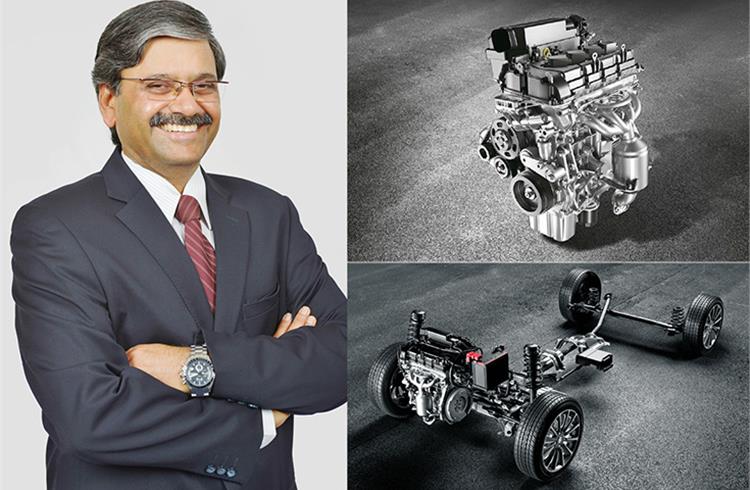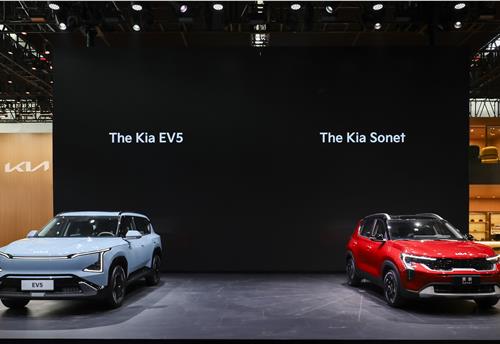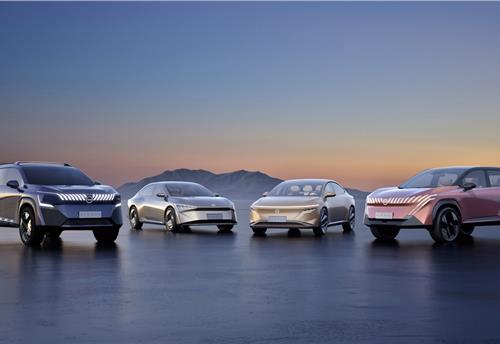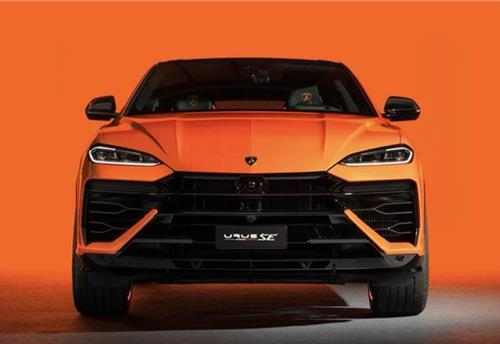IEB AutoTech: Indian automakers’ drive towards carbon-neutrality
Maruti Suzuki’s CV Raman details the many efforts the Indian auto industry is taking at the global forum.
The first-ever virtual IEB AutoTech, the automotive thought leadership platform, was held on September 16. Featuring a line-up of international speakers and panelists from key stakeholders – manufacturers, suppliers and governments – IEB AutoTech 2021 delivered an engaging and meaningful dialogue around global mobility evolution in the carbon-neutral age.
The key topics of discussion at the event – electrification and carbon-neutrality, sustainable mobility and the e-mobility technology ecosystem – were explored in greater detail in the afternoon breakout sessions.
Representing the Indian automobile industry ar IEB AutoTech 2021 was C V Raman, Chief Technology Officer, Maruti Suzuki India, who made a detailed presentation on ‘Approach to Reduce Carbon Footprints in Indian Automotive Industry’. He began his presentation by saying that India has set targets for 2030 to reduce the GHG intensity of GDP. India is already ahead of the trajectory to meet the INDCs and is one of the few countries which is already on the path to limit the temperature rise to 1.5degC. “"India is en route to reaching 1.5deg target. We need to maintain trend to meet the 2050 target. It is the only G20 country to achieve the target thus far," pointed out Raman.
However, a deficit in local fuel reserves has always been high on the government of India’s radar due to the energy security issue. Limiting the imports of crude oil is one of the key targets set by the government of India to limit the foreign exchange outgo. According to Raman, "The Indian passenger vehicle industry is committed to reducing carbon emission with various technologies. India’s import bill is $100 billion annually, with 90% of that being crude oil – the transport sector accounts for 37%. of this. Rising mobility needs alternate energy sources to drive reduction"
India Auto Inc's continuing efforts at sustainability
India Auto India has, over the years, undertaken and implemented a number of initiatives to reduce crude oil imports in the past. Fuel efficiency improvement of vehicles driven mainly by customer requirements and lately regulation of fuel efficiency on passenger vehicles are a few of those initiatives, besides educating customers on fuel-efficient driving and maintenance tips. Raman said: "The Indian automotive industry is engaged in IC engine improvements, hybridisation / electrification, alternate fuels and vehicle lightweighting to reduce carbon emissions."
Besides this, Indian automakers have been working hand in hand with the government of India to develop powertrains to run on alternate fuels. Ethanol blending was introduced in 2003 with E5 blends and ramped up to E10 from 2008 and will spread across the country by end of the year. E20 introduction is planned much ahead of the BioFuel policy released in 2018. Similarly, on the alternate fuels based on gas, retro-fitment of CNG systems was done since the early 2000s on a limited scale and in some pockets of the country.
In fact, Maruti Suzuki India, the car market leader, recognised the potential of developing CNG engines for passenger vehicles and increase the acceptance of the fuel among customers. CNG powertrains, with CO2 lower by around 20% from the base petrol engine was a low-cost answer for hybridization of powertrains, which was happening in the developed markets.
According to Raman, “Our CNG models enable 20% reduction compared to petrol. We re-engineered our models to create a safe, technologically advanced ecosystem. We sell 150,000 CNG cars a year which accounts for 12% of our total sales. Over 10 years, oru CNG cars have reduced emissions by a million tonnes."
What’s more, he added, is that the momentum is set to increase. “The number of CNG stations is to increase in India to 5,000 by 2025 and over 11,000 by 2030 from 1,300 in 2018. Gas-based mobility synergising with bio-CNG ecosystem will enable a circular economy with carbon negative emissions."
Focus on alternate fuels too
What started as an initiative to reduce the crude oil imports today has taken a turn towards reduction of GHG and decarbonisation of the transport sector. Ethanol-based flex-fuel vehicles, as being discussed for the future, can mark the start of usage of carbon-neutral fuels, while already CNG-based vehicles today are utilising the bio-CNG fuel being produced in small towns and countryside, a fuel which is carbon negative in its true sense.
Affordability and cost factor of EVs
Speaking on the topic of alternate mobility, Maneesh Singh of Dao EV Tech, “expects 20 times growth in the electric two-wheeler segment over the next four years.” He however believes that the, “Scalability in EV segment in India cannot be on the same lines as ICE vehicles. Availability of adequate charging stations is seen as a bottleneck to faster EV adoption.” Singh feels there is an urgent need to bridge the gap in terms of technology to hasten the charging process using solutions like swappable batteries and centralised charging models.
Derek De Bono, Group Product Marketing Vice President, Valeo also agreed that he, “sees a lot of opportunities in micro mobility space and we are in the process of developing products catering specifically to Indian markets.”
Horst Schneider, Head of European Automotive Research, Bank Of America Europe, also a part of the same pane added that cost and financing is also an aspect to look into but there is, “No need for sustainable finance or subsidisation on fund side to drive electrification at the moment. Green Bonds, ESG aim to offer cheaper finance cost. Carmakers will mainly aim to get higher ESG rating and cheaper finance cost.”
Bono signed off highlighting that, “Various aspects of carbon neutrality has to be considered. It is important that there is active liaising with customers and suppliers for greater electrification and carbon neutrality. Achieving carbon neutrality at an affordable level is the real challenge.”
Clearly, India and its automotive industry is doing its bit in the drive towards carbon-neutrality.
Attend the on-demand session. Click on the link to know more
https://bit.ly/3wodbxW

RELATED ARTICLES
Kia displays EV5 and Sonet SUVs for Chinese market
Kia has unveiled a number of key models and new technologies for Chinese customers at the 2024 Beijing International Aut...
Nissan targets growth in China, unveils four NEV concepts at Beijing Motor Show
The two EVs and two plug-in hybrids are a joint effort with Nissan’s local partner Dong Feng and aimed to better address...
Lamborghini unveils Urus SE ahead of Auto China 2024
Electric-only range of 60km helps reduce emissions by 80%.





 By Autocar Pro News Desk
By Autocar Pro News Desk
 17 Sep 2021
17 Sep 2021
 3651 Views
3651 Views









